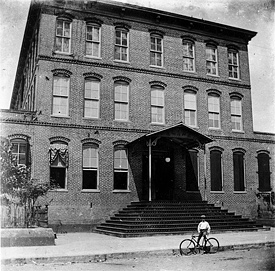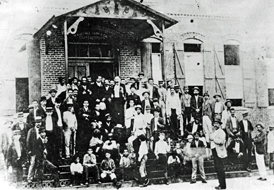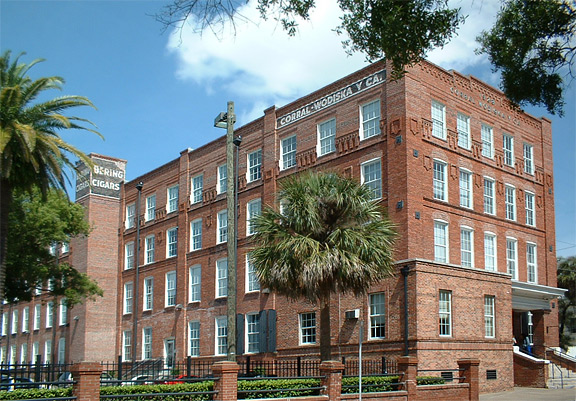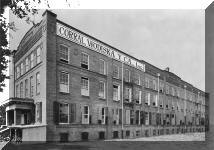 |
|
|
|
Looking east on 7th Avenue from 13th Street. This building is now occupied by an interior design company. |
|
|
|
|
|
|
|
|
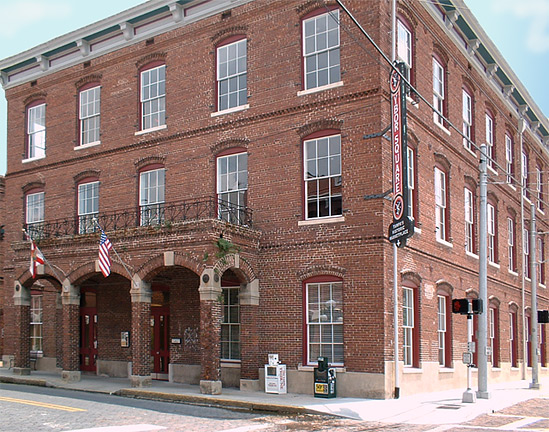 |
Photo at above was taken in 1890; the boy on the bicycle would ride down the steps for 25 cents. |
|
|
|
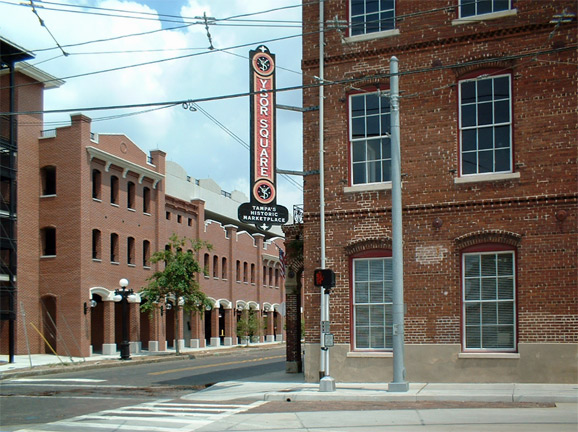 |
|
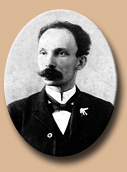 As early as 1871, Tampa became a refuge for thousands Cubans fleeing Spanish rule in their homeland. They first settled in Key West, but as Ybor and others moved their cigar factories to Tampa, the Cuban refugees moved also. Marti's impassioned writings and oratory against Spanish domination of Cuba were carried out primarily in the United States. Marti, known as the "George Washington" of Cuba, lived in New York City, Key West, and Ybor City. Marti first arrived in Tampa on Nov. 24, 1891. He spent the night at famed El Pasaje Hotel, then known as the Cherokee Club. Before retiring he proclaimed: "I feel happy amongst warriors." He collected funds for the fight; altogether, some 27 military expeditions financed and largely manned by Ybor City Cubans left Tampa to fight in the homeland. On a visit in 1893, after an attempt to poison Marti failed, he found refuge at La Casa de Pedroso. |
|
| The Historic El Pasaje Building - This two-story brick building at "Avenida Republica de Cuba" and 9th Ave. is modeled after an Italian Renaissance villa. It is the second brick building erected in Ybor City and is located across the street from Ybor's original cigar factory, what is today Ybor Square. |
The building was originally built in 1886 to house the offices for Vicente Martinez Ybor's companies as he planned Ybor City and then ran his cigar factory and other businesses. Jose Marti slept here on his first trip, Nov. 25, 1891. Before retiring he said, "I feel happy amongst warriors." Others who came here were Col. Teddy Roosevelt, Pres. Grover Cleveland, Sir Winston Churchill, Gen. Leonard Wood and Frederick Remington.
The Cherokee Club was established in 1895 for the promotion of "social intercourse among its members," which at the time included many of Tampa's most prominent businessmen and cigar manufacturers; it quickly became a popular rendezvous spot for the elite. Later it became known as El Pasaje Restaurant and its fame spread throughout the Americas. From 1890 to 1935 all Governors of Florida were feted here.
El Pasaje has been home to many establishments since: a hotel, several restaurants, several bars and speakeasies, a military recruiting station, and newspaper offices, among others.
|
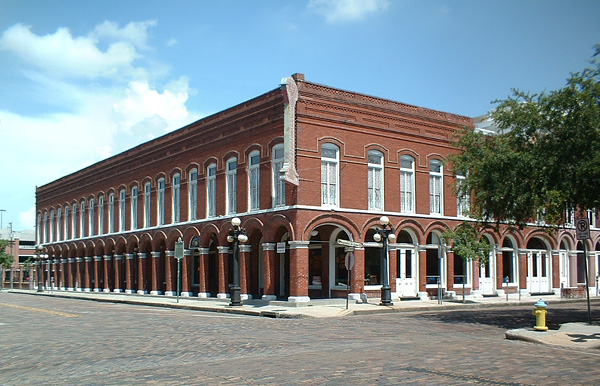
See this building in 1946
People dining at El Pasaje Restaurant
The dining room |
|
| On November 15, 1972, it was added to the U.S. National Register of Historic Places. Read an article from USF Digital Archives: The Evolution and Development of Ybor City by Dr. L. Glenn Westfall. | Recently, it is the location of Cafe Creole. |
|
|
|
|
|
Corral Wodiska Company, makers of Bering Havana Cigars, 1302 19th Street. This building was completed in 1909 for the Esberg-Gunst Cigar Company. In 1925, it was purchased by the Corral-Wodiska and Company. Cigar manufacturing would end when the company was purchased by Jacksonville's Swisher in 1985. The building later became the home of a garment manufacturing business. Today, its used as office space by Granite Services. The Corral Wodiska Company purchased the "Julia Marlowe" label, named after the famous Shakespearian actress. Edward Wodiska, colorful entrepreneur of the firm was reputedly friends with Miss Marlowe.
|
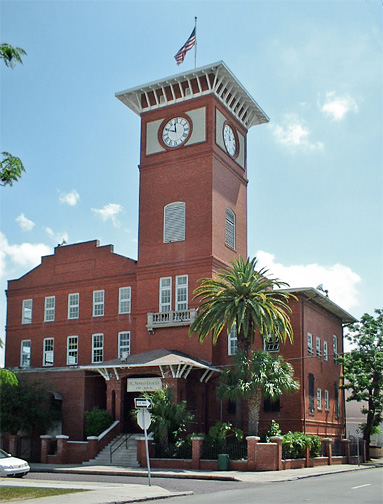
Here is another old cigar factory, this one is owned by the J. C. Newman Cigar Company. Originally built by the Regensburg Cigar Company in 1910, this historic red brick cigar factory with its distinctive tall clock tower and giant "Home of Cuesta-Rey Cigars" sign is an Ybor City landmark. Since 1953, this factory has been home to the J.C. Newman Cigar Company, America's oldest family-owned cigar maker. renovated in the 1940s. Inside there is also a museum devoted to the history of cigar making in Tampa. Founded in 1895 in Cleveland, Ohio, the J. C. Newman Cigar Company's steadfast commitment to quality and passion for innovation has made them one of the world's most successful and respected cigar makers for 114 years. As a Hungarian immigrant, J.C. Newman rolled his first cigars in the family barn in Cleveland in 1895. In 1954, the company moved to Tampa's Ybor City cigar district to be closer to Cuba. The four-generation Fuente and Newman families continue to lead the cigar industry. A look inside Tampa's old cigar factories |
|
|
Page 1 | Page 2 | Page 3 | Page 4 | Ybor State Museum | Centennial Plaza Park | Casitas | Columbia Restaurant |
|
